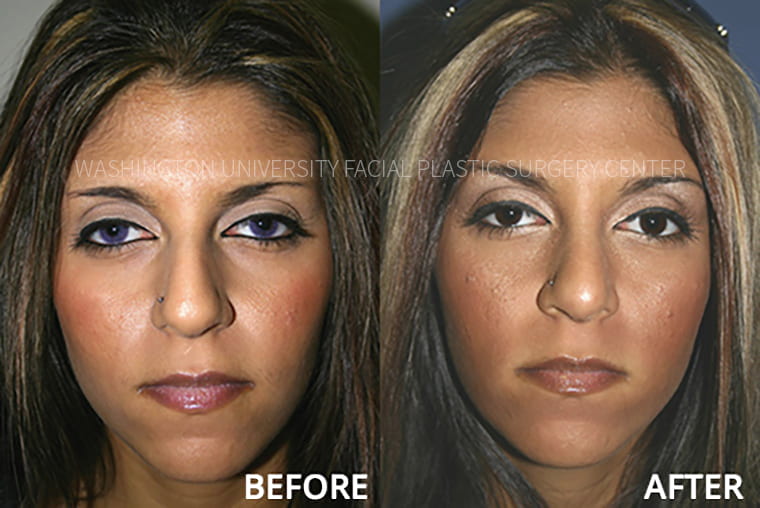A Deep Study the Typical Validation for Seeking Plastic Surgery: Unboxing the Desire for Change and Self-Improvement

Social Stress and Appeal Specifications
Regularly, social stress and dominating charm requirements play a considerable function in people' decisions to go after cosmetic surgical treatment (liposuction bellevue). In contemporary culture, graph heavily affects individual understandings of beauty, commonly perpetuated by media, celebrity recommendations, and social platforms. These networks frequently advertise idyllic versions of beauty, leading people to internalize these requirements and review their self-worth against them

In addition, these stress are not restricted to specific demographics; they impact people throughout various ages, genders, and histories, highlighting the prevalent nature of beauty standards. This widespread influence raises crucial questions concerning the values of plastic surgery and the implications of societal requirements on individual choices. Eventually, recognizing these pressures is important for promoting an extra inclusive meaning of beauty that commemorates diversity.
Individual Experiences and Transformative Stories
Numerous people that undertake plastic surgery record transformative experiences that extend past mere physical modifications. For several, these procedures act as a catalyst for enhanced self-esteem and a restored feeling of identity. Individuals frequently describe feeling freed from long-standing insecurities, leading to increased confidence in both individual and professional worlds.
Take, for instance, the story of a young woman who went through bust augmentation after years of feeling uneasy concerning her look. Post-surgery, she reported not only a newfound comfort in her body however also a significant improvement in her social life and job opportunities. Likewise, a middle-aged male that chose to go through a renovation shared just how the treatment renewed his outlook on life, motivating him to seek new passions and relationships.
:max_bytes(150000):strip_icc():focal(299x319:301x321)/cardi-b-kim-kardashian-011923-f730f661ba814eec980bba77776d1e59.jpg)
Emotional Variables Behind Plastic Surgery
Countless emotional aspects add to the choice to undertake plastic surgery, showing deeper psychological and psychological wellness considerations. Individuals commonly seek surgical improvements as a way to resolve sensations of insufficiency, reduced self-esteem, or frustration with their look. These psychological inspirations can be rooted in past experiences, social contrasts, or individual goals.
Body picture distortion is a prevalent issue, where individuals perceive their physical features in an exaggeratedly adverse light. This distortion can lead to compulsive ideas about perceived problems, prompting the desire for surgical change as an option. Furthermore, the quest of excellence and societal pressures can magnify these sensations, pushing people toward aesthetic treatments in hopes of accomplishing an idyllic version of themselves.
Moreover, the idea of self-improvement plays an important role. Lots of people check out cosmetic surgery as a pathway to boost their high quality of life, believing that enhanced look will bring about enhanced social acceptance, far better relationships, or enhanced occupation chances. Ultimately, the psychological variables behind plastic surgery emphasize the intricate interplay in between private self-perception and outside impacts, disclosing the multifaceted nature of the need for modification.
The Role of Media in Assumption
In today's society, media plays a critical role fit understandings of appeal and self-respect. With various platforms-- social media sites, tv, and advertising-- idyllic criteria of charm are usually shared, affecting individual goals and self-image. These representations frequently highlight slim interpretations of beauty, predominantly featuring younger, slim, and digitally enhanced images, which can create impractical benchmarks for individuals making every effort to adjust.
The impact of media is more intensified by the pervasive nature of social networks, where users are bombarded with curated material that highlights cosmetic enhancements, endorsing a culture of contrast. This consistent exposure can result in feelings of insufficiency amongst viewers, prompting them to think about cosmetic you could try these out surgery as a way of achieving the regarded perfect. Research study shows that individuals that engage with these media depictions are most likely to express dissatisfaction with their appearance, reinforcing the desire for surgical interventions.
Additionally, the normalization of cosmetic surgery in media narratives can desensitize audiences, mounting such procedures as commonplace and even needed for social acceptance. Hence, the media's portrayal of appeal not only affects specific choices relating to cosmetic surgery but likewise adds to a wider societal discussion regarding self-respect and identification.
Future trends and moral considerations
Amidst the growing popularity of plastic surgery, Get More Information moral factors to consider bordering the technique have actually ended up being significantly noticeable. As the demand for procedures climbs, so also do concerns regarding notified approval, the mental inspirations of individuals, and the potential for exploitation by doctors. It is critical for experts to make certain that individuals totally understand the advantages and threats, in addition to the implications of their selections, to cultivate a responsible approach to cosmetic improvements.
Furthermore, the influence of social media sites and appeal requirements questions concerning the influence on psychological health, especially among vulnerable populations. As awareness of body image problems grows, ethical practice requires a mindful examination of the inspirations behind medical interventions. Cosmetic surgeons should stabilize patient wishes with moral duty, guaranteeing that choices are rooted in genuine self-improvement instead of social stress.
Aiming to the future, fads might shift towards non-invasive and technically progressed treatments, emphasizing individual security and contentment. Furthermore, the unification of psychological assessments might help deal with underlying problems before surgical intervention. The plastic surgery field must adjust to these honest difficulties while advertising a culture of transparency and self-acceptance, inevitably prioritizing the wellness of individuals.
Verdict
In conclusion, the search of cosmetic surgery is affected browse around here by a confluence of societal stress, individual experiences, and emotional factors. As honest considerations evolve, future trends in cosmetic surgical procedure will likely show recurring societal dialogues surrounding self-improvement and private identification.
Regularly, societal stress and dominating elegance standards play a considerable role in people' decisions to pursue cosmetic surgical treatment. liposuction bellevue. Eventually, these transformative tales highlight the diverse factors individuals look for cosmetic surgery, linking personal growth with the pursuit of aesthetic enhancement
Several people see cosmetic surgical procedure as a pathway to enhance their top quality of life, thinking that enhanced appearance will lead to enhanced social approval, much better partnerships, or improved career chances. Ultimately, the emotional factors behind cosmetic surgical treatment underscore the complicated interaction in between specific self-perception and exterior impacts, disclosing the multifaceted nature of the desire for adjustment.
As moral factors to consider develop, future fads in cosmetic surgical treatment will likely show ongoing social dialogues bordering self-improvement and individual identity. liposuction bellevue.